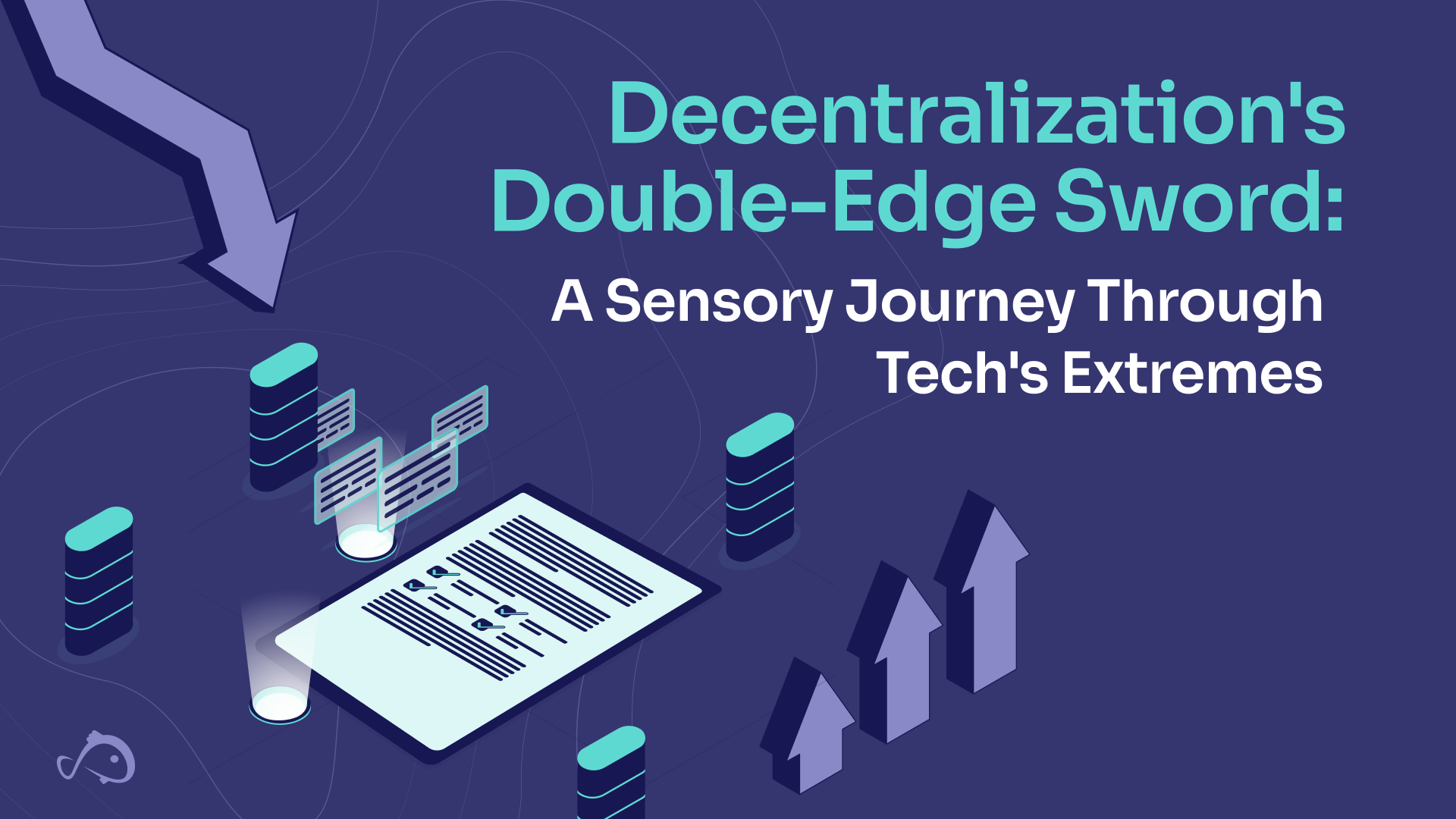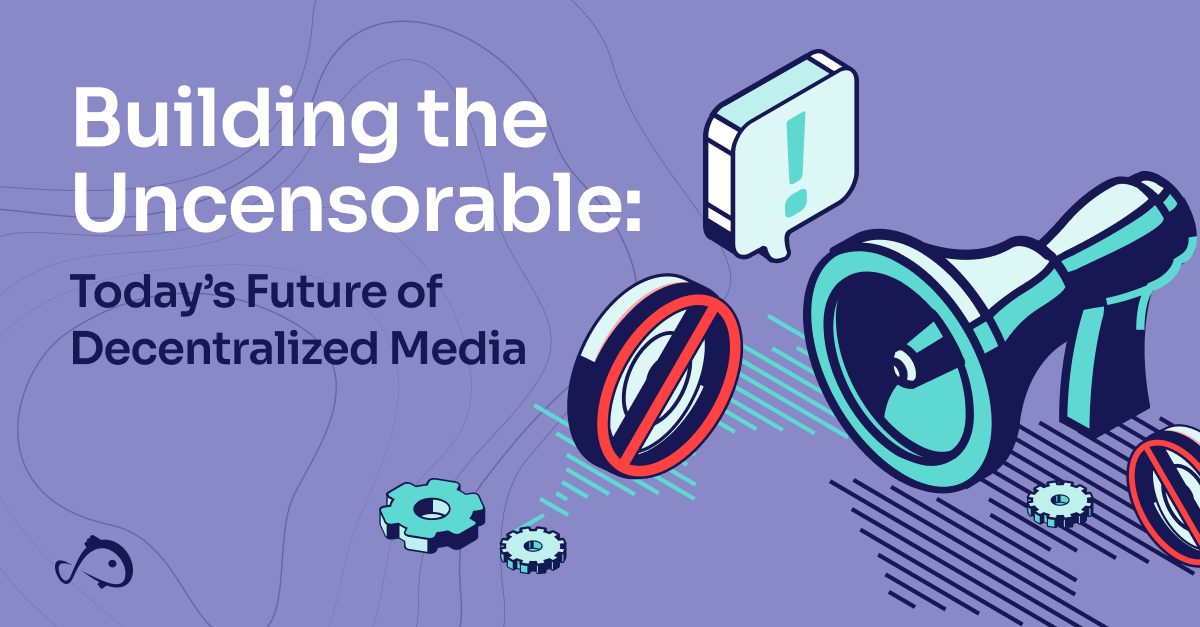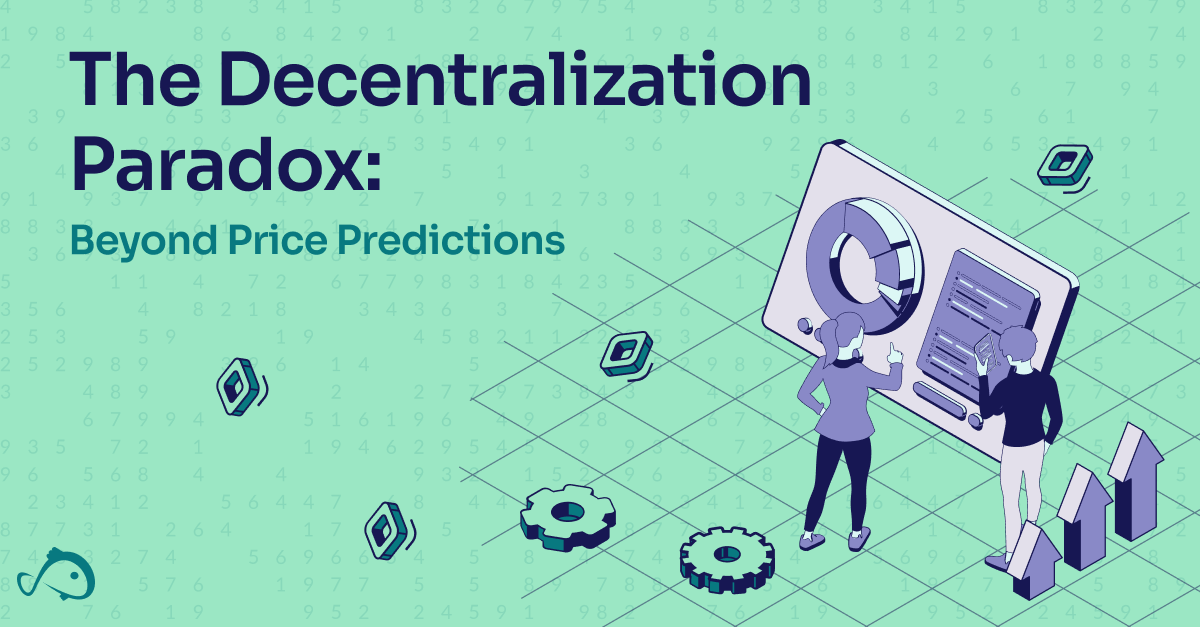Decentralization’s Double-Edged Sword: A Sensory Journey Through Tech’s Extremes
In an increasingly connected world, we’ve come to rely on smart devices and centralized services to manage our daily lives. But what happens when these systems fail? Recent events in the tech world, from the Sonos debacle to the FriendTech burnout, provide stark reminders of the vulnerabilities inherent in both centralized and poorly managed decentralized ecosystems.
At this point in a normal article, we’d bombard you with buzzwords like “paradigm shift” and “synergistic ecosystem.” Instead, appreciate the absurdity of explaining the future with the language of the past—describing decentralized systems using centralized thought patterns.
The Sonos Situation: When the Music Stops
Sonos, known for its high-quality wireless speakers and home sound systems, recently faced a crisis that left many users frustrated. An app update, intended to improve user experience, instead resulted in widespread issues. Users reported problems ranging from device malfunctions to complete system failures, rendering their expensive audio setups useless.
This situation goes beyond mere inconvenience. It represents a breach of trust and a significant financial loss for users who had invested heavily in their systems. The Sonos crisis exemplifies the vulnerability of centralized systems: when a central authority controls all aspects—from software updates to data management—a single mistake can have far-reaching consequences.
FriendTech: The Social Network That Unfriended Itself
While the Sonos situation highlights the dangers of centralization, the recent FriendTech burnout showcases the other extreme. FriendTech, a Web3 social network that saw explosive growth in 2023, effectively shut down after its developers renounced control over its smart contracts.
Initially a hit in the crypto community, FriendTech allowed users to trade tokens for ‘keys’ to influential individuals’ feeds. But after an initial surge, the platform struggled to maintain activity. In a surprising move, the developers transferred control of the platform’s smart contracts to Ethereum’s null address, locking the current system in place and preventing further changes.
Imagine logging into your favorite social platform one day, only to find that the developers have vanished, leaving behind a digital ghost town. This decision, while seemingly in line with decentralization principles, effectively killed any chance of the platform’s revival or evolution. Without the ability to implement new features or adapt to user needs, FriendTech’s future looks bleak.
The Delicate Balance: Tightrope Walking in the Digital Age
These contrasting examples highlight a crucial lesson: decentralization is not a silver bullet, but a tool that must be wielded wisely. The ideal lies somewhere between Sonos’ centralized control and FriendTech’s extreme hands-off approach—a system that distributes control and decision-making across a network of participants, yet retains the flexibility to evolve and improve over time.
At Koii, we’re building technologies that embrace a balanced approach to decentralization that doesn’t leave you high and dry when a single point of failure decides to take a day off.
Our Succinct Curated Acyclic Ledger Extensions (SCALEs) and Compute Attribution and Reputation Protocol (CARP) aim to create resilient, user-centric systems without sacrificing adaptability. It’s like having a self-healing, self-improving digital ecosystem that grows with its users, rather than constraining them.
Beyond the Buzz: Real-World Applications
The potential applications of balanced decentralization extend far beyond audio systems or social networks. From censorship-resistant social media platforms to privacy-prioritizing search engines, the possibilities are vast. We’re even exploring more equitable financial systems with our upcoming VPN Koin and $LIBER token launch.
Imagine a music streaming service that distributes both storage and processing across a network of user devices. Not only does this reduce the risk of system-wide failures like those seen with Sonos, but it also ensures that your favorite tunes are always just a decentralized hop, skip, and jump away.
The Future is Decentralized (But Not Too Decentralized?)
The Sonos and FriendTech situations serve as crucial reminders of the need for thoughtful, balanced approaches to decentralization. As users, we should demand systems that respect our autonomy, protect our investments, and have the capacity to grow. As developers and innovators, we have the responsibility to build these systems with care and foresight.
Decentralization isn’t just a technical solution; it’s a paradigm shift in how we think about and interact with technology. It’s about creating a digital world that’s more resilient, more equitable, and more aligned with user interests, while retaining the ability to adapt and improve.
As we continue to develop these technologies, we invite innovators and tech enthusiasts to join us in shaping this future. Join the Koii X Truflation Hackathon and be a part of shaping the future of technology! Dive into innovation and creativity while competing for substantial prizes. At Koii, we’re turning vision into reality, one block at a time. Don’t miss out—join our Discord and get started now!

 Building the Uncensorable: Today’s Future of Decentralized Media
Building the Uncensorable: Today’s Future of Decentralized Media